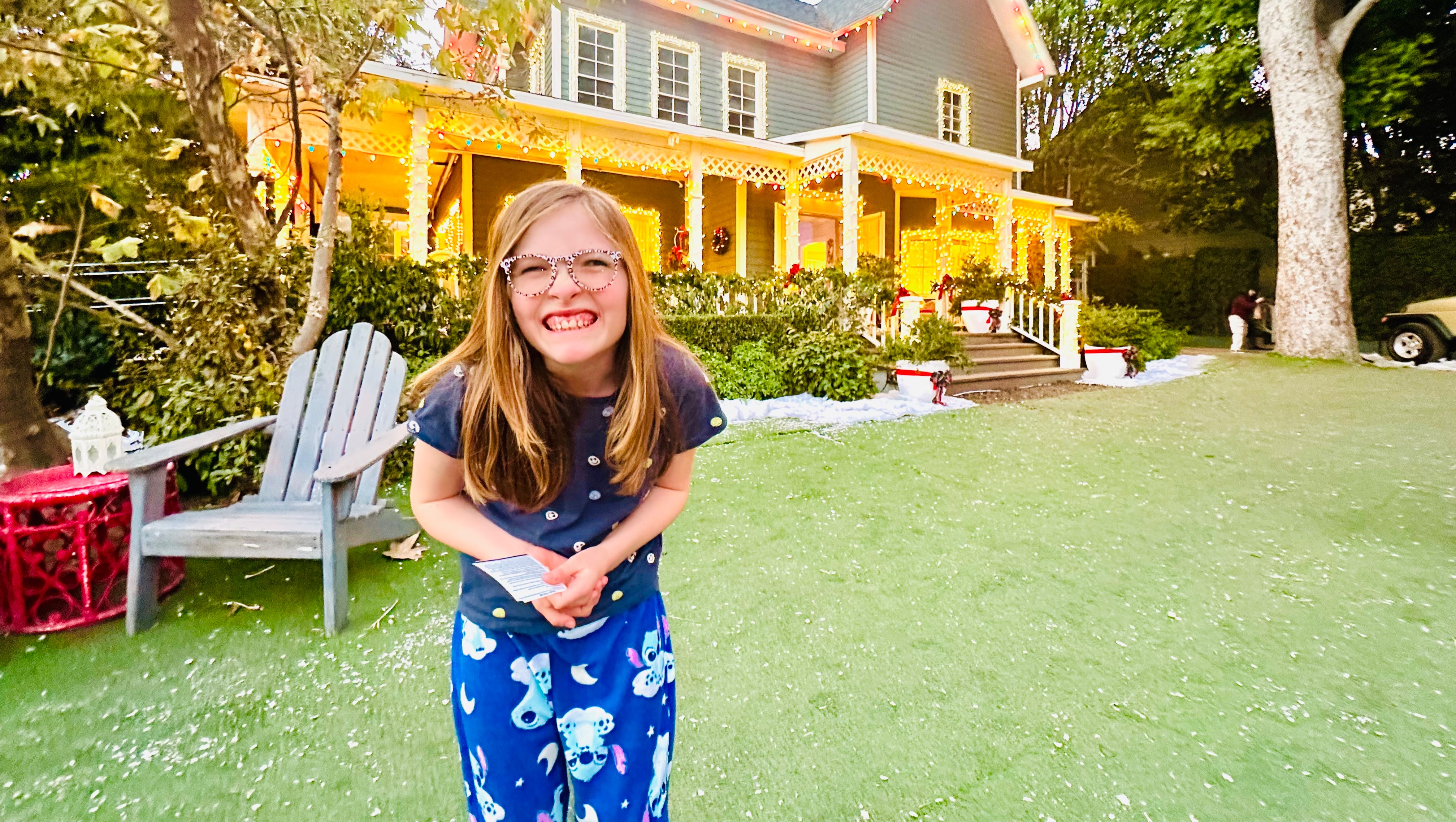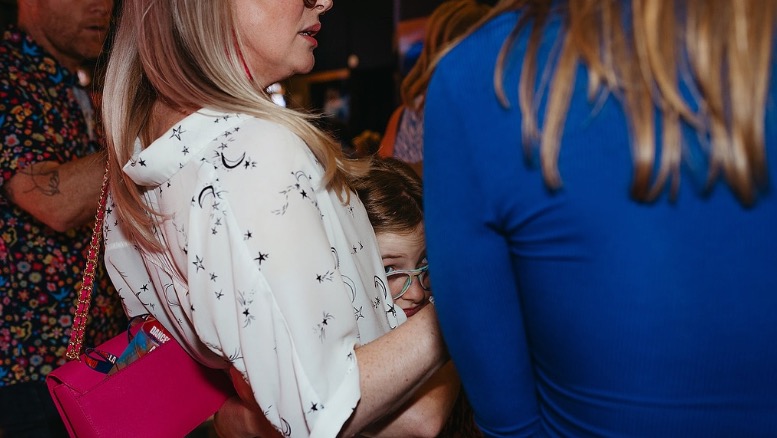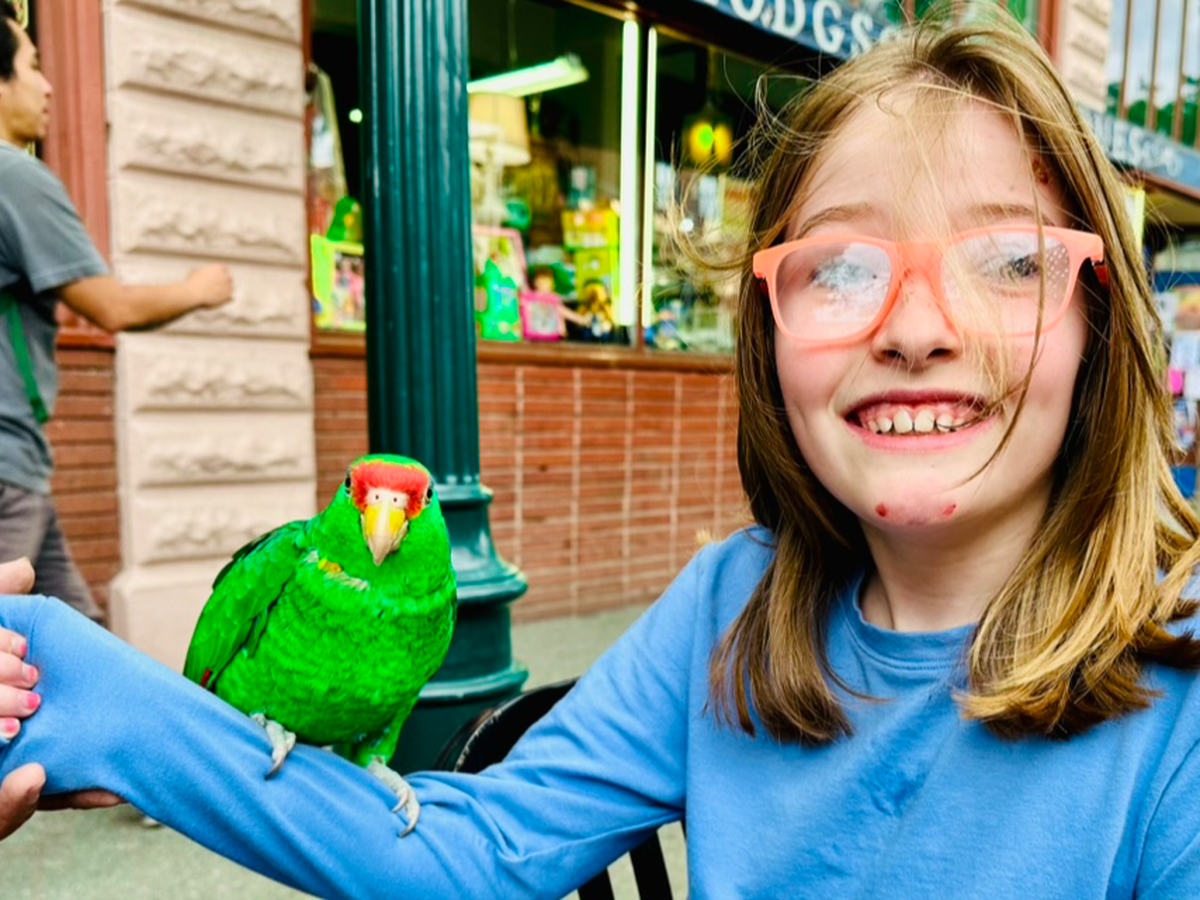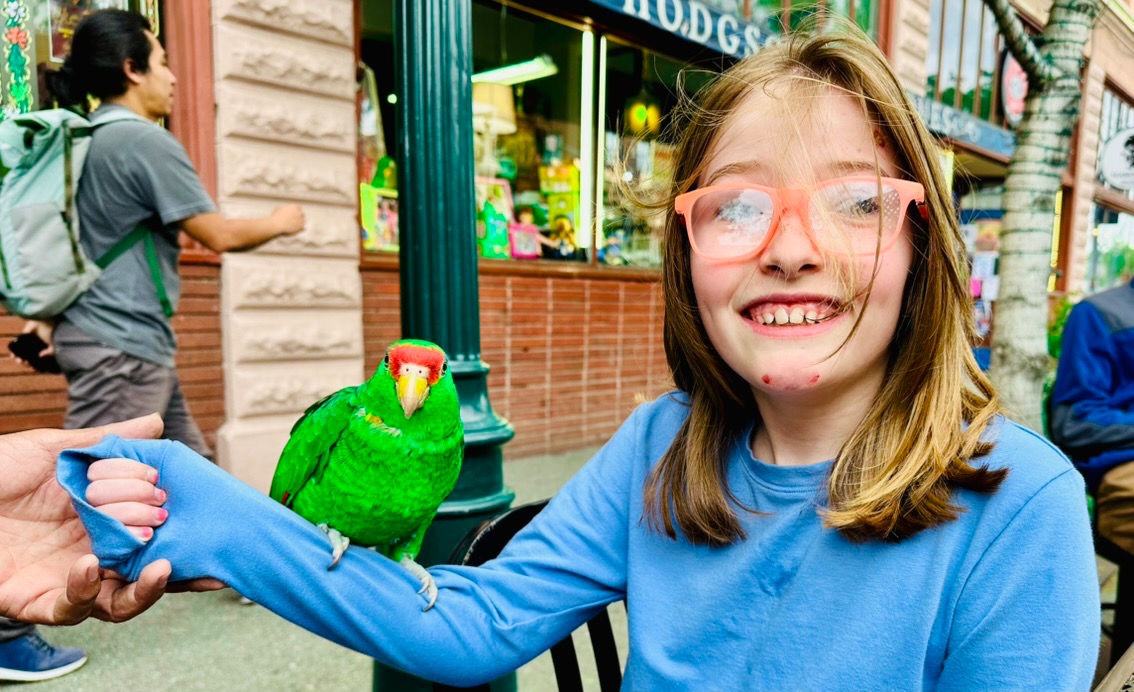Friends,

This is Neve. Neve is...extraordinary. As you know, if you've met her.
Neve is in crisis, and it’s one that we have to accede we are unable to manage in our home. She needs a kind of medical intervention that is beyond our capacity as parents, and way beyond that of the medical professionals around us, who know less about PWS than we do. Luckily, that kind of intervention exists. There is one place (ONE!!) in Houston, Texas called the Nexus Jump Start Program, which specializes in the inpatient care of young people with PWS to help stabilize and empower them to live to their potential.
The issue: it is exceedingly expensive. And Medi-Cal, the state of California's Medicaid system, which provides Neve's healthcare, normally very attentive to the needs of its disabled citizens, has DENIED THIS CLAIM for Neve. We can't appeal, and have no safe in-state options at this very critical moment.
So we've come to you for your help.
She was born without a name, a departure from her older brother Liam. We didn't know her until she arrived, early, but named her moments later with an ancient word that describes bright, crystalline mountaintop snow. Clarity. In the coming months, we would get to know her in ways we never imagined and in ways that would change everything.
Neve was born with an exceedingly rare, impossibly complex genetic disorder called Prader-Willi Syndrome (PWS), which affects somewhere in the vicinity of 1 in 20,000 live births. The hallmark of PWS is hyperphagia, a cruel dysfunction of the endocrine system that prevents those living with the disorder from feeling satiety. That means, when Neve eats, her brain doesn't process the fundamental chemistry telling her that she is full. In fact, the opposite occurs. At best, Neve always feels hungry; at worst, she feels like she's starving. What is made manifest from this dysfunction is a crisis of ruthless, legion symptoms that prevent Neve from living a life that is, well, full. Neve's life is absent of friendships, playdates, parties, or typical ten-year-old fun.
Imagine that for a second: it’s been too long since your last meal; you’re trapped in meetings or in traffic, and the hours grind on. You’re probably not at your best. In fact, you’re probably closer to your worst self than not, and through no fault of your own. Your body is driving you to a feeling of scarcity, sometimes terrifyingly so, in an effort to exhort you to eat, and when you do, you adjust. Imagine the relief. Now imagine a world where you are inherently robbed of that agency, and relief doesn’t exist.
That’s Prader-Willi Syndrome.
There is no relief.
(Remember those Snickers commercials where people turned into Joe Pesci? It'd be like being stuck as Joe Pesci.)
As a result, people with PWS suffer from an existential anxiety that leads to myriad deleterious behaviors that include self-harm, perseveration and obsessive compulsion, explosive dysregulation, sleep disturbances, and in many cases, psychosis. This says nothing of the very real medical issues that come with this kind of metabolic disorder such as obesity, heart disease, diabetes, and sleep apnea. It seems as if this list goes on forever.
To add to the inimical nature of the syndrome's hallmark, starvation, PWS patients suffer from a slower metabolism, meaning even on calorie-restricted diets, they gain more weight on far less food. Neve eats every two and a half hours on a calorie-restricted diet monitored by her PCP, nutritionist and endocrinologist.
An hour prior to each meal, Neve begins asking "how long til I can eat again?" Until recently, the answer was met with great efforts toward understanding: timers, fidgets, crafts, phone calls to family to distract from feeling so hungryyyy.
However, the path of PWS is not constant, but parabolic. Around adolescence, hyperphagia accelerates, sometimes swiftly and brutally, leaving children and families at sea where they once felt secure. Such has been Neve's journey, and by extension, ours.
For years, we have considered ourselves "on top of it," facing issues with PWS as they came with clarity and swiftness. No hesitation, no denial about what was happening. We lock our kitchen at night; we police any food or food wrappers assiduously; we time our own meals and snacks; we avoid talk of food; we avoid television that contains mention or image of food; we train all school staff to keep food out of lessons and therapies, and not to use food as reward or incentive. Our house is a fortress built to protect Neve from her most destructive instincts. But these measures have started to fail us.
In just the past six weeks, Neve has experienced a regression so profound that it has become exceedingly difficult to keep her safe even in our own exceedingly secure home. We have met every extreme behavior with a commensurate increase in extreme security.It's not enough to help her. She is struggling, and the doctors we have are too unfamiliar with her syndrome to fully support her.
We ask with humility and hope that we still live in a society of altruistic individuals, that you'll consider donating literally any amount. We hope that our community can willingly mobilize for the good of their peers and neighbors in the absence of structures and leaders that seem willing to do so.
We have seen it over and over again, and now find ourselves in that very moment of need, not for ourselves, but for a little girl with a life to live.
With Profound Gratitude,
The Griffins



